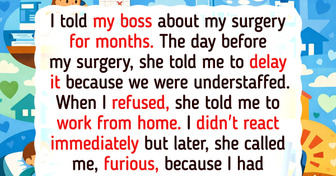Well, if your boss didn't take credit for things that YOU DID, you would not have had to play dirty. You absolutely did the right thing. Your coworkers would have done the same if they were in your position. Only you know if it was worth it, to you. Everyone else can stay quiet or follow your lead, and GIVE CREDIT WHERE IT IS DUE. They aren't paying your bills. You done good, sweetie.
I Refuse to Let My Boss Take Credit for My Work Again, So I Decided to Outsmart Him
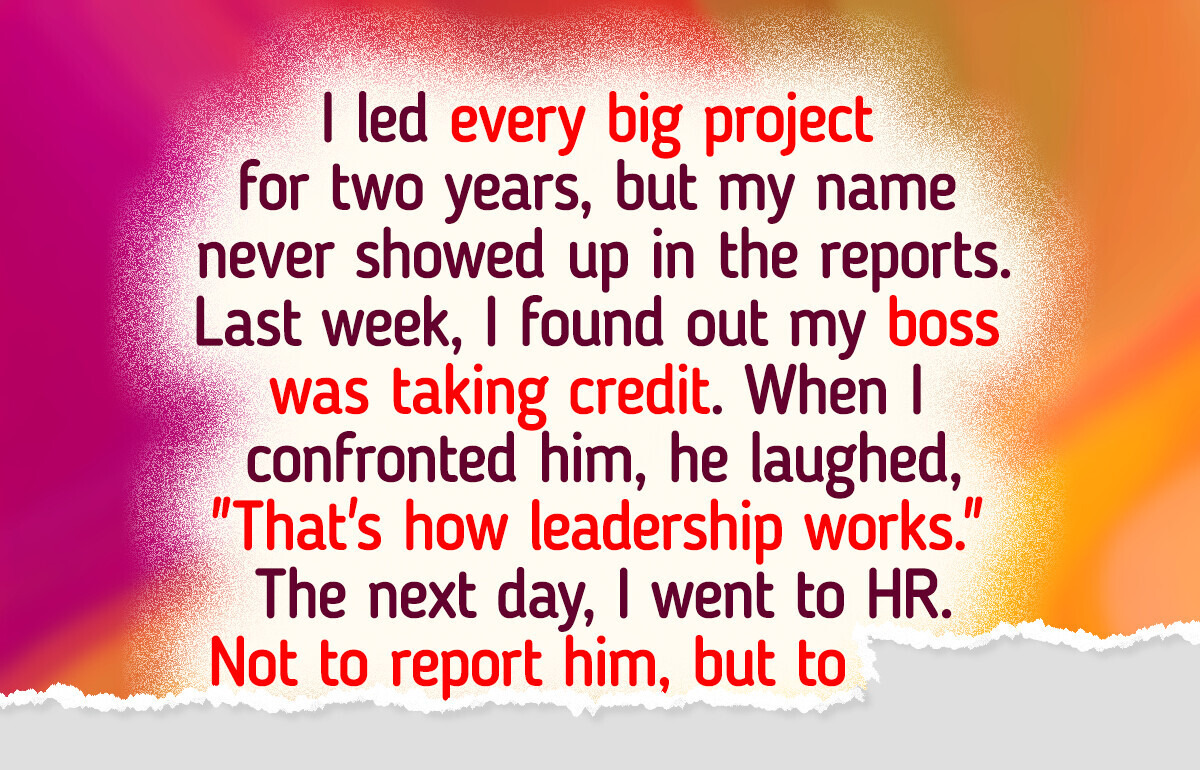
Most of us know how frustrating it is to work hard and watch someone else get the credit. Nova, 28, from Chicago, lived that every day, until one moment pushed her too far. Tired of being invisible, she made a bold move that completely flipped the power dynamic at her office. Here’s her gripping, dramatic story.
How the office hero became the office ghost.
“Hi, Bright Side.
I don’t usually share things online, but I’ve been spiraling over something that happened at work, and I honestly don’t know if I’m proud or horrified.
A little context: I’m a marketing coordinator at a mid-size company in Chicago. I’m not fresh out of college, but I’m still low enough on the ladder that people assume I just ’help out.’ For two years, I’ve been writing copy, building strategy decks, and staying up until 2 a.m. while my boss, Gavin, takes the credit.
When our last campaign tripled engagement, he gave me a fake smile and said, ’We make a great team.’ A week later, I saw his name plastered all over the final report, the same one I wrote, slide by slide. When I asked why my name wasn’t there, he laughed and said, ’That’s how leadership works.’
I felt something snap.”
The tiny click that changed everything.
“The next morning, I went to HR. Not to report him, but to ask for formal ownership of our projects in the internal system, the tag that shows who actually creates and uploads files. I said I needed it ’for organization purposes.’ They approved it in five minutes.
That tiny change gave me quiet control over everything.
When we started the next project, I built the new analytics dashboard and saved it in my private folder, where only I had access. Gavin kept saying he’d handle the presentation. I nodded, pretending to agree.
On the day of the big meeting with the execs, I didn’t even get invited, as usual. I just sat at my desk and watched his calendar turn green. Ten minutes into the meeting, I got a frantic text from him: ’Where’s the retention report?’
I waited a few minutes, then replied: ’I thought you said you didn’t need my help. That’s how leadership works, right?’”
When victory didn’t feel like winning.
“Later, I was called into the conference room. Gavin looked pale and sweaty. I calmly opened my laptop, pulled up the report, and walked the execs through the data. The VP turned to him and asked, ’Why wasn’t she the one presenting from the start?’
The silence that followed was almost cruel.
A few days later, Gavin filed a complaint, saying I ’sabotaged’ him. HR called me in. I explained that I’d been the one leading the projects for two years, and that I had emails, timestamps, and file histories to prove it. I even reminded them that they’d officially made me the project owner before that meeting.
One week later, Gavin was demoted.
Now my name is finally on the reports. But the office has turned weird. Some coworkers think I’m a hero; others whisper that I’m a backstabber. Someone actually called me ’a snake in heels.’
And here I am, with credit, recognition, and this pit in my stomach that won’t go away. Did I do the right thing? Or did I just prove I can play dirty too?
What would you have done in my place?”
Our readers didn’t stay quiet. They jumped in with their own office-grade opinions, faster than HR fills out a report.
- SpreadsheetSorcerer45: “I’ve worked under a ’Gavin’ before. Took credit, took praise, took everything except responsibility. Honestly? You did what the system forced you to do.
If companies reward loud voices over real work, then quiet people have to get strategic. You didn’t sabotage him, you EXPOSED him!” - MomOf3AndTired: “Part of me thinks you were right, but another part of me worries how badly this could’ve gone. Sometimes you gotta let someone burn their own fingers. I just hope this doesn’t come back to bite you professionally.”
- Feelmecoffee: “Girl, that move was SAVAGE. I would’ve made popcorn at my desk and watched him sweat. If he stole my work like that? I’d have done worse. HR would’ve needed HR.”
- EthicalEagle22: “Not going to sugarcoat it: this WAS sabotage. Doesn’t matter how you justify it. And yes, he was wrong too, but two wrongs do not make a right.
Workplaces break down when everyone starts playing games. You should’ve escalated formally from the beginning.” - BoomerWithWiFi67: “This story hits a nerve because it shows how messy justice can be. You weren’t rewarded for honesty; you were rewarded for strategy. Morally gray? Absolutely.
But that’s modern corporate life. Sometimes you have to show teeth, so people stop stepping on you.”
Our take: What Nova’s story teaches us about workplace credit, boundaries, and burnout.

im gonna play the devil's advocate, and yes i agree with the ethicaleagle22 and momof3andtired. it's sabotaging and two wrongs never make a right. why do all these people act "when you go low, i go lower"??? it's not classy at all.
Nova’s experience might sound dramatic, but it reflects something very real happening in workplaces everywhere. Reports consistently show that when employees don’t receive credit for their work, their stress levels rise and their motivation plummets. And it’s no surprise Nova reached a breaking point: being invisible slowly wears people down.
Gallup’s global report supports this, revealing that employees who feel unrecognized are twice as likely to consider leaving their job within a year. And when this kind of neglect continues over time, it often leads to burnout. According to Maslach, burnout develops when people feel overwhelmed, undervalued, and unable to control the conditions of their work. So, Nova wasn’t “overreacting”; she was reacting the way many people do when they feel unheard for too long.

I think no matter how you handled this people would be upset. He worked the system so did you. But keep your resume up to date cause this may put a target on your back.
While we’re not here to tell anyone how to react, Nova’s story shows how important it is to protect your work and your well-being early on. Documenting contributions, speaking up before resentment builds, and looping HR into the structure of your role (even in subtle ways) can prevent small injustices from turning into explosive situations.
And beyond strategy, there’s the emotional side: feeling unseen hurts. It can shake your confidence and make you question your worth.
Whether Nova’s reaction was justified is something every reader will decide for themselves. But her feelings weren’t dramatic: they were human, and backed by everything we know about how recognition (or the lack of it) shapes our mental health.
What do you think? Have you ever been in a similar situation where someone took credit for your work? Tell us what you would’ve done in her place. We’d love to read your thoughts.
And if you enjoy reading about complicated relationships and tough moral choices, check out this article about a woman who refused to cover for a coworker on maternity leave and ended up labelled the office villain.
Comments
I feel like more people would be ok with this is she was a man.
Related Reads
I Refused to Do My Supervisor’s Work for Him, Now HR Got Involved
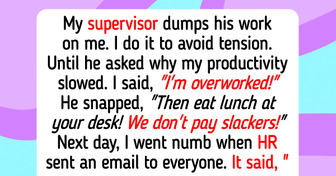
I Charged My MIL for Christmas Dinner, Even Though She’s Always Helped Us for Free
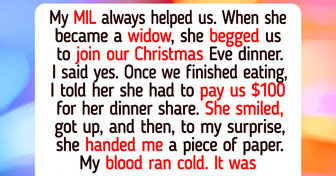
HR Fired Me After I Asked for More Pay—A Decade of Loyalty Meant Nothing
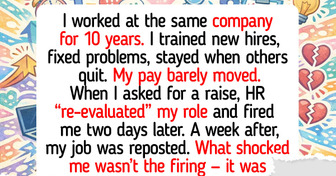
12 Stories That Prove Real Kindness Is About Actions, Not Words
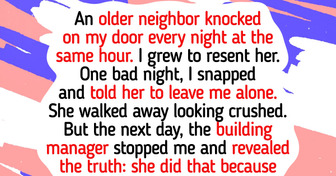
I Refused to Let My Stepson Share My Daughter’s Room
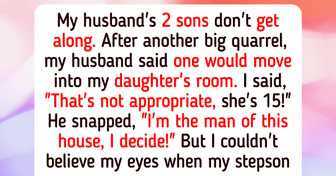
I Refuse to Be My Brother’s ATM Anymore—The Revenge He Planned Was Sick
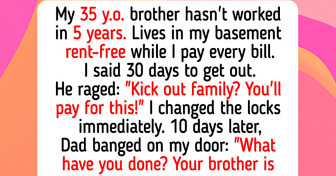
My Family Always Prioritized My Sister—Then Expected Me to Help Them With Medical Bills
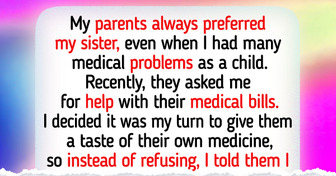
12 Real-Life Betrayals That Sound Like Movie Plots
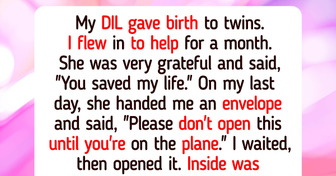
I Refuse to Work Three Unpaid Weekends to Prove Loyalty — HR Got Involved
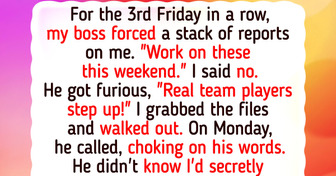
A Stranger Humiliated My Daughter at Disney World—He Picked the Wrong Mom to Mess With
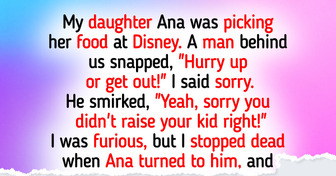
12 Moments That Show Romance Is Really About Small Acts of Kindness

I Was Denied Sick Leave Because My Boss Said It Was “Inconvenient Timing”
